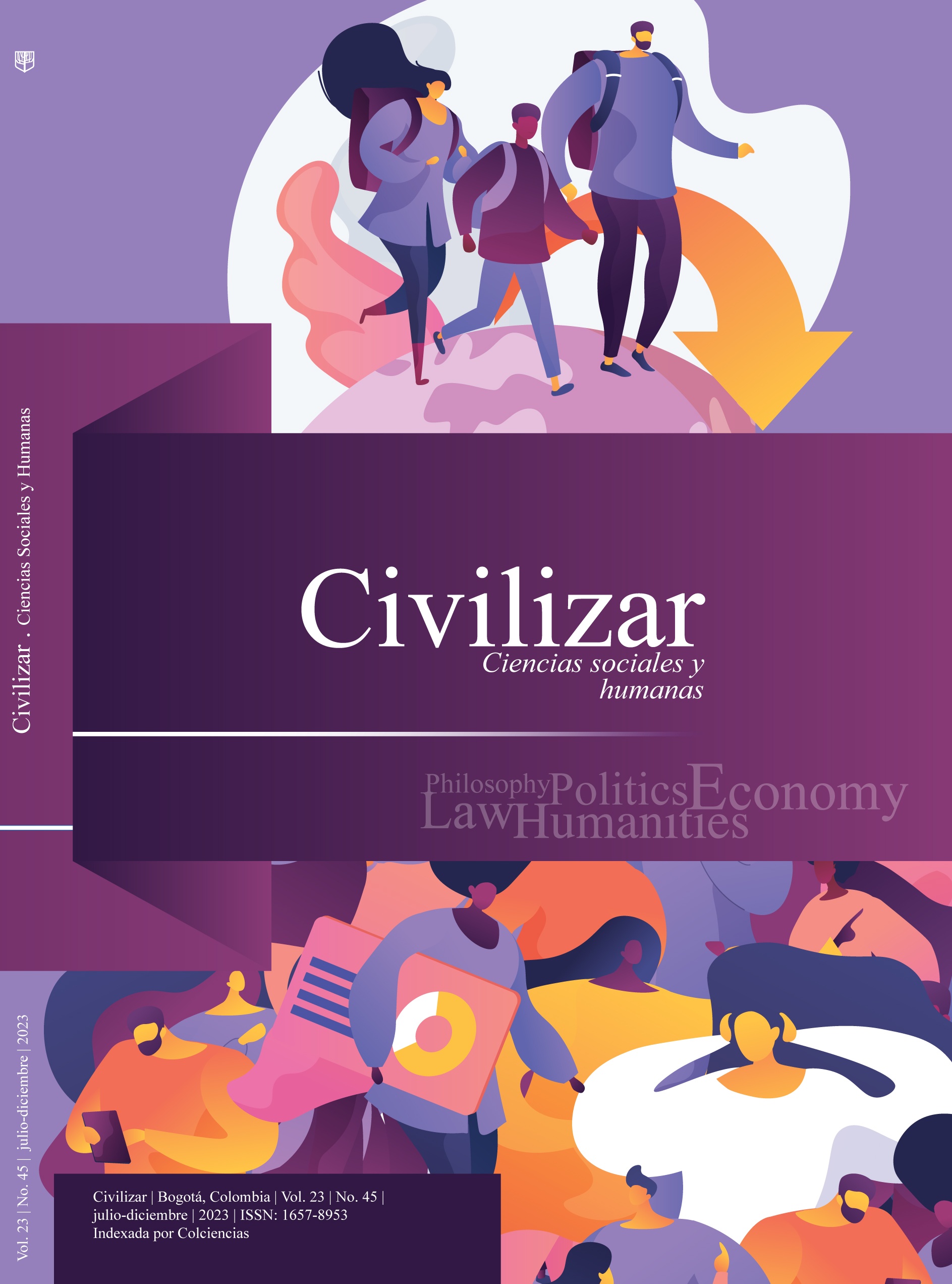Abstract
This article examines the entrepreneurial activities of migrants involved in the productive life of Barranquilla at the beginning of the 19th century. As Colombia's main port, Barranquilla became a hub for trade, capital, and foreigners who perceived it as a "gateway" for the economic development of their trading houses, banks, and factories. The primary objective is to present successful cases of North American, European, and Latin American businessmen who found opportunities in Barranquilla to expand their capital, and whose economic migration was successful to the extent that they integrated into the dynamics of a Caribbean city—with cultural and social structures different from those of their home countries—where they learned to overcome the adversities of the time. The methodological approach includes a historical review of migratory processes in the port cities of the Colombian Caribbean, focusing specifically on Barranquilla due to the economic expansion it experienced through the activities of migrant bankers, merchants, and entrepreneurs. Among the partial results, a strong receptivity of the Caribbean basin to transatlantic migrations in contemporary times was found, particularly for groups with commercial and business initiatives in territories experiencing significant economic growth.
References
Acosta, J. (1844). Inmigración y naturalización de extranjeros. Bogotá: Imprenta Nacional.
Beaufils, T. (2005). El libro negro del colonialismo: siglos XVI al XXI : del exterminio al arrepentimiento. Madrid: Esfera de los Libros.
Carmagnani, M., & Casetta, G. (1980). La imagen de América Latina en Italia en los siglos XIX y XX. Revista Estudios Latinoamericanos.
De Pombo, L. (1845). Recopilación de leyes de la Nueva Granada. Bogotá: Imprenta de Zoilo Salazar.
Fawcett, L., & Posada Carbó, E. (1998). Arabes y judíos en el desarrollo del Caribe colombiano, 1850-1950. Boletín Cultural y Bibliográfico.
Hobsbawm, E. (1998). La era del capital, 1848-1975. Barcelona: Editorial Critica.
Kalmanovitz, S. (2003). Economía y nación: una breve historia de Colombia. Bogotá: Grupo Editorial Norma.
Lázaro Montes, J. (2020). Alemanes en el Caribe colombiano: vida cultural y Nacionalsocialismo en Barranquilla, 1930-1942. HiSTOReLo. Revista de historia regional y local.
Martínez, F. (1997). Apogeo y decadencia del ideal de la inmigración europea en Colombia, siglo XIX. Boletín cultural y bibliográfico.
Martinez, L., & D Amato, G. (2022). Reflexiones sobre el recorrido histórico de los movimientos estudiantiles, las teorías marxistas y las universidades públicas de Colombia. Izquierdas.
Odette Yidi, Y. (2012). Los árabes en Barranquilla. Memorias .
Pinzón, C. (1849). Anales diplomáticos y consulares de Colombia. Bogotá: Edición Oficial.
Revenga, J. (1914). Memorias presidenciales y memorias sobre relaciones exteriores presentadas al Congreso Nacional. Bogotá: Anales Diplomáticos y Consulares de Colombia.
Rodríguez, M., & Restrepo, J. (1982). Los empresarios extranjeros de Barranquilla 1820-1900. Revista Desarrollo y Sociedad.
Solano de las Aguas, S. (2010). De ciudad portuaria al puerto como espacio polifuncional. Los puertos del Gran Caribe en el Siglo XIX. Historelo.
Uribe, A., Montenegro , A., Garizabal, M., & Sánchez, M. (2017). Negocios inclusivos beneficio compartido entre empresas y poblaciones vulneradas de Latinoamérica. Revista Espacios.
Vidal, A., & D Amato , G. (2016). Enlazando la Nación: del río Magdalena al Gran Caribe 1840-1890. En R. Romero, Economía del Caribe colombiano en la construcción de la Nación 1770-1930. San Andres: Universidad Nacional.
Vidal, A., & D Amato, G. (2013). Y en New York en 1892 hablaban de Barranquilla. Memorias.
Vidal, A., & D Amato, G. (2015). Los otros, sin patria: italianos en el litoral Caribe de Colombia a comienzos del siglo XX. Caravelle.
Wallerstein, I. (2010). El moderno sistema mundial: III. La segunda era de gran expansión de la economía-mundo capitalista, 1730-1850. Madrid: Siglo XXI .
Wolf, E. (2005). Europa y la gente sin historia. Mexico D.F.: Fondo de Cultura Económica.

This work is licensed under a Creative Commons Attribution-NonCommercial-NoDerivatives 4.0 International License.
Copyright (c) 2023 Civilizar


